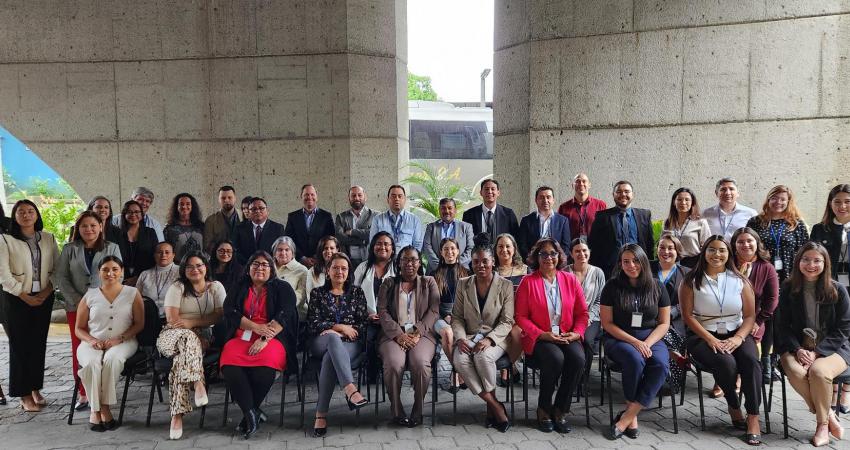Countries in the region advance in the implementation of labor migration mechanisms

With the purpose to strengthen and expand regular channels for labor migration, the International Organization for Migration (IOM) together with the Member Countries of the Regional Conference on Migration (RCM), and with the participation of civil society, represented by the Regional Network of Civil Organizations for Migration (RNCOM), met to review the results of the Needs Assessment Study on Labor Migration Mechanisms developed by the Western Hemisphere Program.
The study seeks to identify the feasibility and conditions required for the implementation of technological mechanisms and tools for labor migration management and to examine the challenges and opportunities for their implementation.
"We have received a lot of valuable information and the important thing is that, although it is probably information that already existed, now we have it documented, systematized and it allows us to have in our hands routes, examples, good practices and lessons learned to boost actions at the national, binational and regional levels," said Araceli Peña, member of the Independent Monitoring Group of El Salvador (GMIES), a member organization of the RNCOM.
After reflecting on the findings of the study, the participants were part of working groups to draw up roadmaps detailing the requirements for implementing labor migration mechanisms, through participatory processes with the competent authorities in each country and according to the needs identified.
Strengthening labor mobility mechanisms is essential, since intraregional migration for labor purposes in Central America, Mexico and the Caribbean has shown a continuous growth, turning some of the countries in the region into destination countries for migrants.
In this sense, governments have made efforts to establish regular channels for labor migration, including the development of labor traceability systems. The successful case of the Labor Migration Traceability System in Costa Rica has innovated in the traceability of workers, as this system has facilitated the regular entry of more than 38,900 temporary migrant workers for the harvest season in Costa Rica.
As part of the agreements, the RCM, by consensus among the participating countries, will identify follow-up actions that will be included in the recommendations for the next Pro-Tempore Presidency and its Work Plan. In addition, the roadmaps will be validated with each country to initiate the respective implementation of actions.
The activity was coordinated by IOM with funding from the Bureau of Population, Refugees and Migration (PRM) and is aligned with international instruments related to migration and human rights, such as the Global Compact for Safe, Orderly and Regular Migration (goals 2, 4, 5, 6, 11 and 15), and the Sustainable Development Goals (10, 8, 5 and 16).
